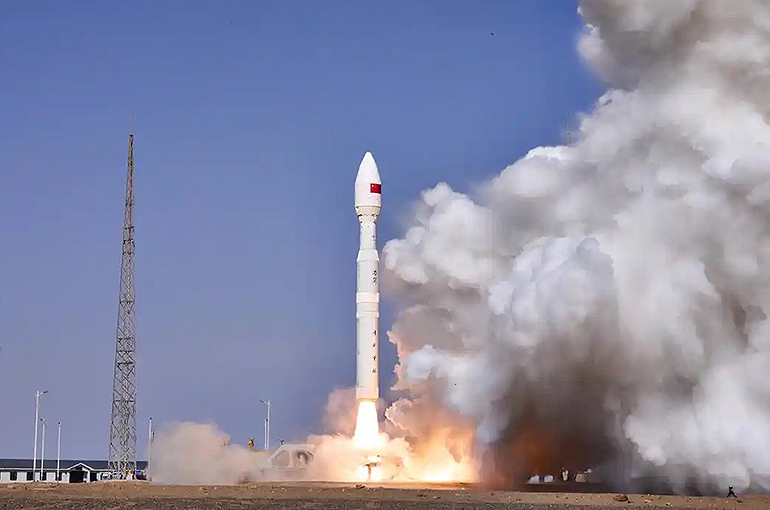 China’s Commercial Rocket Launchers Close Cost Gap With SpaceX
China’s Commercial Rocket Launchers Close Cost Gap With SpaceX(Yicai) Oct. 23 -- Even without reusable rockets, China’s commercial space companies are driving launch costs down and expect to offer communication satellite launches at prices comparable to SpaceX by as early as next year.
CAS Space’s launches cost about CNY50,000 (USD6,900) per kilogram, Chief Financial Officer Fan Na told Yicai during the Oct. 19 launch of the firm’s Lijian-1 Y8 rocket at the Jiuquan Satellite Launch Center. That could fall to around CNY30,000 (USD4,140) per kg when the more powerful Lijian-2 enters service at the end of this year, Fan pointed out.
A launch involving SpaceX's reusable Falcon 9 rocket costs around USD3,000 per kg.
The Lijian-1 Y8 mission from the Jiuquan launch facility in northwestern China delivered three remote sensing satellites into orbit. It was the Lijian-1’s third international mission, since one of the satellites is owned by Pakistan’s government. To date, the Lijian-1 has placed 73 satellites into orbit.
CAS Space’s launch costs are approaching SpaceX’s because of the differences in the supply chain systems between China and the United States, according to Fan. Chinese suppliers can respond fast, and upstream and downstream firms can quickly coordinate to unlock scale efficiencies, Fan added.
“In the US supply chain, recovery and reuse are among the few cost reduction options,” Fan said. But in China, even without recovery and reuse, we can push down costs through faster supply chain response, competitive bidding, and tighter integration.”
CAS Space is also actively exploring reusable rocket technologies to further cut costs, founder and Chairman Yang Yiqiang told Yicai. Although the Lijian-2 will be recoverable initially, the Guangzhou-based company is striving to overcome technical difficulties and plans to achieve reusability by 2027, Yang said.
“In the next few years, deployment of communications satellite constellations will be the largest source of demand for commercial rocket launch services,” Yang said, adding that a company’s ability to compete for orders will hinge on whether its commercial rockets can complete constellation launches at lower cost and higher frequency.
All of China’s commercial rocket companies are "in the red," according to an investor in the field. But as CAS Space's Lijian series will have a higher launch frequency from next year, the business will likely break even within the next three years, he said.
Editors: Tang Shihua, Martin Kadiev